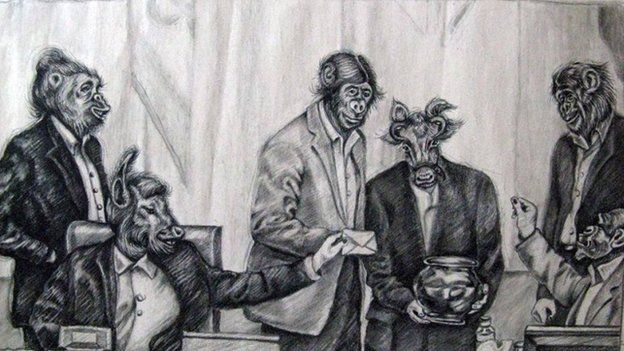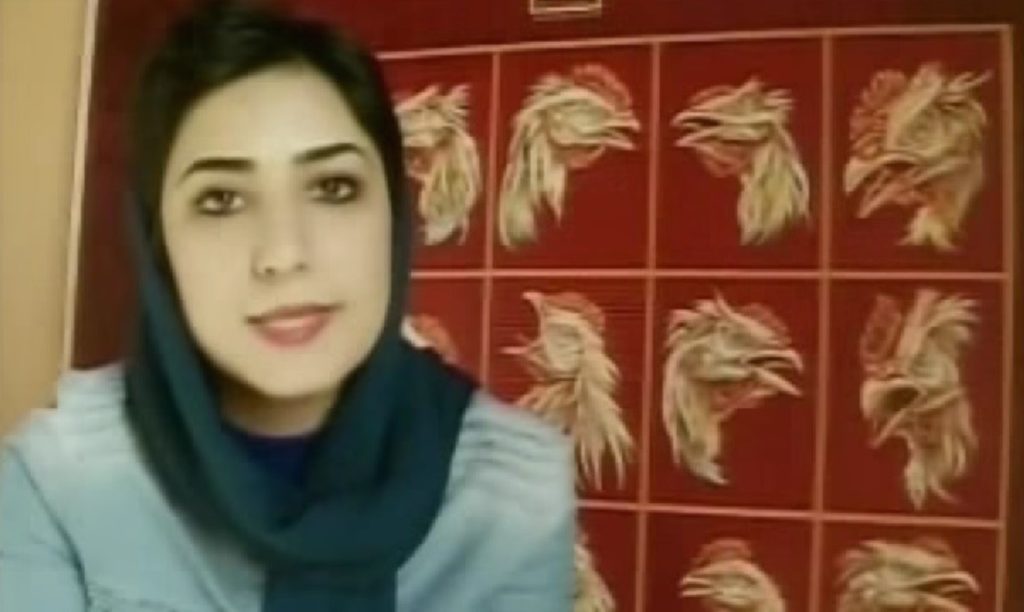People
28-Year-Old Iranian Cartoonist Sentenced to 12 Years in Prison


Cait Munro

Iranian artist Atena Farghadani has been sentenced to 12 years and nine months in prison. The crime? Depicting Iranian leaders as monkeys and cows.
The 28-year-old artist drew the cartoon last year and published it to Facebook as a critique of a proposed law that would ban vasectomies for men and restrict access to contraception for everyone.
Although the proposition attracted national and international criticism, Farghadani was arrested last August in connection with the cartoon and imprisoned for several weeks. She was later apprehended after posting a video online in which she outlined the various ways she had been mistreated in prison, and alleged that guards had beaten her.
She was tried before Tehran’s Revolutionary Court yesterday for crimes including “insulting members of parliament through paintings” and “spreading propaganda against the system,” according to the Washington Post.
Since January, Farghadani has been held in solitary confinement; in February, the artist suffered a heart attack.

Atena Farghadani
Photo: YouTube/Amnesty International.
Before her incarceration in January, Farghadani responded to the charges via an open letter to Supreme Leader Seyyed Ali Khamenei. “What you call an ‘insult to representatives of the parliament by means of cartoons,'” she wrote. “I consider to be an artistic expression…”
“I know…I will be present before a judge who for years has skewed the balance of justice,” she continued. “I, therefore, must pay retribution for defending my beloved defenseless people.”
Sources that have been involved in the case, including Amnesty International, the International Campaign for Human Rights in Iran, and the Cartoonists Rights Network International (CRNI), say that the longest Farghadani can legally be imprisoned is seven years and six months, and that her team is currently planning an appeal.
“Obviously, everyone at CRNI is stunned and saddened by the developments, said Joel Pett, president of CRNI. “I’m personally heartbroken and angry that we were not able to do more to help.”
Controversial cartoons have made headlines several times this year, most notably after the shooting at French satire magazine Charlie Hebdo.
In March, two Turkish caricaturists were fined for their depiction of the Turkish president, Recep Tayyip Erdogan, and a Malaysian cartoonist was charged with sedition.